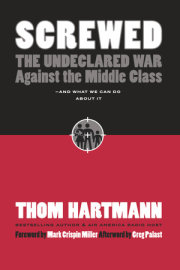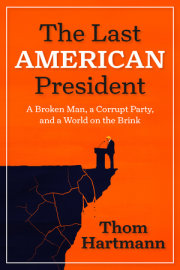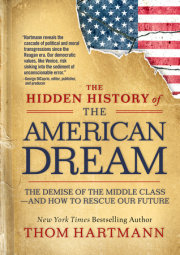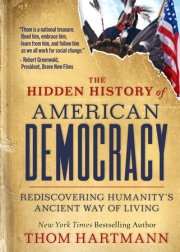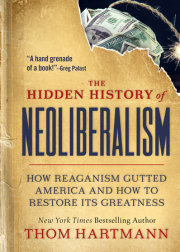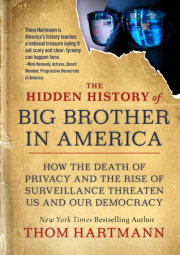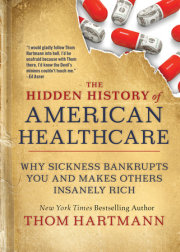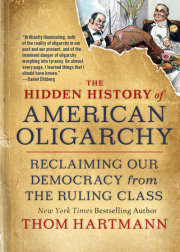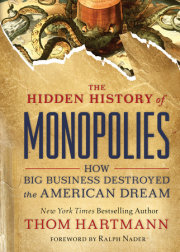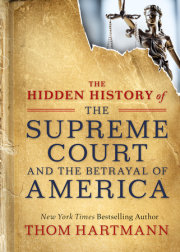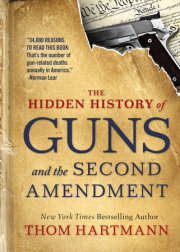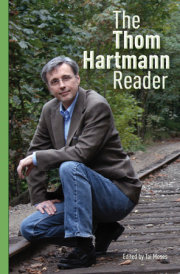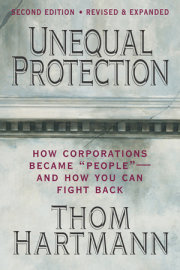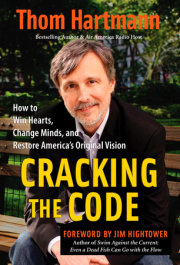Profits before People
THE STORY OF CARL
Carl loved books and he loved history. After spending two years in the army as part of the American occupation forces in Japan immediately after World War II, Carl was hoping to graduate from college and teach history—perhaps even at the university level—if he could hang on to the GI Bill and his day job long enough to get his PhD. But in 1950, when he’d been married just a few months, the surprise came that forced him to drop out of college: his wife was pregnant with their first child.
This was an era when husbands worked, wives tended the home, and being a good father and provider was one of the highest callings to which a man could aspire. Carl dropped out of school, kept his 9-to-5 job at a camera shop, and got a second job at a metal fabricating plant, working with molten metal from 7:00 p.m. to 4:00 a.m. For much of his wife’s pregnancy and his newborn son’s first year, he slept three hours a night and caught up on the weekends, but in the process he earned enough to get them an apartment and prepare for the costs of raising a family. Over the next forty-five years, he continued to work in the steel and machine industry, in the later years as a bookkeeper/manager for a Michigan tool-and-die company as three more sons were born.
Carl knew he was doing the right thing when he took that job in the factory, and he did it enthusiastically. Because the auto industry was unionized, he found he was able to support his entire family—all four sons—on one paycheck. He had fully funded health insurance, an annual vacation, and a good pension waiting for him when he retired. Carl had become a member of the middle class. He may not have achieved his personal dream of teaching history, but he had achieved the American dream. He was self-sufficient and free.
Working with molten metal could be dangerous, but the dangers were apparent, and Carl took every precaution to protect himself so that he could return home safe to his family. What he didn’t realize, however, was that the asbestos used at the casting operation was an insidious poison. He didn’t realize that the asbestos industry had known for decades that the stuff could kill but would continue to profitably market it for another twenty years while actively using its financial muscle to keep the general public in the dark and prevent the government from interfering.
A couple of years ago, Carl tripped on the stairs and ended up in the hospital with a compression fracture of his spine. He figured that fall also caused the terrible pain he’d been experiencing in his abdomen. The doctors, however, discovered that his lungs were filled with mesothelioma, a rare form of lung cancer that is almost always caused by exposure to asbestos. Mesothelioma is terminal, and its victims die by slow and painful suffocation.
Just because some corporation put profit before people, Carl got screwed.
I was Carl’s first child.
AN UNDECLARED WAR
My dad faced a painful death, but at least his job in a union shop left him with health care after retirement. Most Americans don’t even have that reassurance anymore. More than 45 million Americans don’t have health insurance to cover expenses for a serious illness; 5 million have lost their health insurance in the past four years alone. And it’s not just illness that worries most Americans today. Americans are working more and making less. It’s getting harder and harder to just get by.
There’s a reason for the pain Americans are suffering.
The America my dad grew up in put people before profits. The America he lives in now puts profits before people.
In my dad’s America, 35 percent of working people were union members who got a living wage, health insurance, and defined-benefits pensions. These union benefits lifted all boats because they set the floor for employment; for every union job, there was typically a nonunion job with similar pay and benefits (meaning roughly 70 percent of the American workforce back then could raise a family on a single paycheck). People who were disabled and couldn’t work could live on Social Security payments, and the elderly knew they would have a safe retirement, paid for by pensions, Social Security, and Medicare. The gap between the richest and the poorest shrunk rather than widened.
That America is disappearing fast. The minimum wage—just $5.15 per hour—is not a living wage. Workers are now expected to pay for their own health insurance and their own retirement. Pension plans are disappearing—30,000 General Motors employees lost theirs in 2005—and there’s continued talk of privatizing Social Security. The safety net is ripping apart, and the results are that the middle class is shrinking. The rich are once again getting richer, and the poor are getting poorer:
Image The inflation-adjusted average annual pay of a CEO went up from $7,773,000 to $9,600,000 from 2002 to 2004. Meanwhile, from 2000 to 2004, the inflation-adjusted median annual household income went down from $46,058 to $44,389. In other words, ordinary people’s income went down by $1,669 while CEO pay went up by $1,827,000.1
Image Over the past four years, from 2001 to 2005, America has lost 2,818,000 manufacturing jobs. If you don’t count jobs produced by the military-industrial complex, the number of private sector jobs created since 2001 has decreased by 1,160,000.2
Image Although 67 percent of large employers (more than 500 employees) offer a traditional pension, that is down from 91 percent two decades ago, and it’s dropping fast as more companies freeze pensions and turn instead to 401(k)s.3 Only 6 percent of Americans working in the private sector can rely on a defined pension,4 and 76 percent of Baby Boomers say they don’t think they are very prepared to meet their retirement expenses.5
Image Today only 60 percent of employers provide health care to their employees. More than 45 million Americans were without health insurance as of 2004, and we can only guess that that number has grown.6
You don’t need the numbers because you probably already know someone who has been forced out of the middle class. Roger, for instance, who once was a vice president of research and development for a software engineering company, lost his job during the dot-com bust and never got it back. After being unemployed for seven years, he’s thinking of getting a job as a “landscape engineer"—that’s a gardener—at a tenth of his former salary.
Or there’s the case of Bob, a college graduate who has been holding three jobs for the past five years, one full-time as a bookstore clerk, two part-time. Even though he works sixty hours a week, he doesn’t make enough money to rent his own apartment (he rents a room in a shared flat) and he can’t afford health insurance. He hopes his allergies don’t turn into asthma because he can’t afford the medication he would need for that.
Too many Americans are just holding on. Consider Amy: Divorced from her alcoholic husband, she has gone back to school full-time to become a teacher; she earns a living by catering on the weekends. A single mother, she and her daughter share a studio apartment. Amy has neither health insurance nor child care and no nearby relatives—she relies on neighbors to take care of her daughter. One major illness and Amy would be homeless.
And then there are most of the rest of us, who have good jobs but still don’t feel secure about the future. Ralph and Sally both get health insurance through their jobs, but their mortgage eats up more than 60 percent of their income, and the clothes and the necessities they buy for their two kids consume whatever might be left after groceries and utilities. They have health insurance but no pension. Their retirement is based on the few thousand dollars a year they can put into their IRAs. They wonder how they will be able to send their kids to college and afford to retire.
Today a man like my dad couldn’t support a family of six on one paycheck. The middle class my dad belonged to is on its deathbed. Meanwhile, sitting around the pool, waiting for the dividend checks to roll in (while paying a maximum 15 percent income tax), the corporate class grows even wealthier.
How can this be?
How is it that companies could sell asbestos when they knew it would kill people? Why do people go hungry in America, the world’s wealthiest nation? Why is it that people like you and me who work long, full days cannot afford to get sick, cannot buy houses, and cannot send their kids to college? What’s happened to the middle class?
These questions are about our economy, but the answer is about who we are as a country.
DEMOCRACY AND THE MIDDLE CLASS
The most ancient form of democracy is found among virtually all indigenous peoples of the world. It’s the way humans have lived for more than 150,000 years. There are no rich and no poor among most tribal people—everybody is “middle class.” There is also little hierarchy. The concept of “chief” is one that Europeans brought with them to America—which in large part is what produced so much confusion in the 1600s and 1700s in America as most Native American tribes would never delegate absolute authority to any one person to sign a treaty. Instead decisions were made by consensus in these most ancient cauldrons of democracy.
The Founders of this nation, and the Framers of our Constitution, were heavily influenced and inspired by the democracy they saw all around them. Much of the U.S. Constitution is based on the Iroquois Confederacy—the five (later six) tribes who occupied territories from New England to the edge of the Midwest. It was a democracy with elected representatives, an upper and lower house, and a supreme court (made up entirely of women, who held final say in five of the six tribes).
As Benjamin Franklin noted to his contemporaries at the Constitutional Convention: “It would be a very strange thing if Six Nations of Ignorant Savages should be capable of forming a Scheme for such an Union and be able to execute it in such a manner, as that it has subsisted Ages, and appears indissoluble, and yet a like union should be impracticable for ten or a dozen English colonies.”
The Framers modeled the oldest democracies, and the oldest forms of the middle class, and thus helped create the truly widespread and strong first middle class in the history of modern civilization.
Back in Europe, however, the sort of democracy the Framers were borrowing and inventing, and even the existence of a middle class itself, was considered unnatural. For most of the seven thousand years of recorded human history, all the way back to the Gilgamesh Epic, the oldest written story, what we call a middle class is virtually unheard of—as was democracy. Throughout most of the history of what we call civilization, an unrestrained economy and the idea of hierarchical social organization has always produced a small ruling elite and a large number of nearly impoverished workers.
Up until the founding of America, the middle class was considered unnatural by many political philosophers. Thomas Hobbes wrote in his 1651 magnum opus Leviathan that the world was better off with the rule of the few over the many, even if that meant that the many were impoverished. Without a strong and iron-fisted ruler, Hobbes wrote, there would be “no place for industry . . . no arts, no letters, no society.” Because Hobbes believed that ordinary people couldn’t govern themselves, he believed that most people would be happy to exchange personal freedom and economic opportunity for the ability to live in safety and security. For the working class to have both freedom and security, Hobbes suggested, was impossible.
Our nation’s Founders disagreed. They believed in the rights of ordinary people to self-determination, so they created a form of government where We the People rule. They declared that all people, and not just the elite, have the right to “life, liberty, and the pursuit of happiness.” (In that declaration, Thomas Jefferson replaced John Locke’s famous “life, liberty, and property” with “life, liberty, and happiness"—the first time the word had ever appeared in the founding document of any nation.) They believed that We the People could create a country founded on personal freedom and economic opportunity for all. The Founders believed in the power of a middle class; and in defiance of Hobbes and the conventional wisdom of Europe, they believed that democracy and a middle class were the “natural state of man.”
As John Quincy Adams argued before the Supreme Court in 1841 on behalf of freeing rebelling slaves in the Amistad case, he stood before and pointed to a copy of the Declaration of Independence:
That DECLARATION says that every man is “endowed by his Creator with certain inalienable rights,” and that “among these are life, liberty, and the pursuit of happiness.” . . . I will not here discuss the right or the rights of slavery, but I say that the doctrine of Hobbes, that War is the natural state of man, has for ages been exploded, as equally disclaimed and rejected by the philosopher and the Christian. That it is utterly incompatible with any theory of human rights, and especially with the rights which the Declaration of Independence proclaims as self-evident truths.
It turns out that the Founders knew something Hobbes didn’t know: political democracy and an economic middle class is the natural state of humankind. Indeed, it’s the natural state of the entire animal kingdom.
For example, biologists used to think that animal societies were ruled by alpha males. Recent studies, however, have found that while it’s true that alpha males (and females, in some species) have the advantage in courtship rituals, that’s where their power ends. Biologists Tim Roper and L. Conradt discovered that animals don’t follow a leader but instead move together.7
James Randerson did a follow-up study with red deer to prove the point.8 How does a herd of deer decide it’s time to stop grazing and go toward the watering hole? As they’re grazing, various deer point their bodies in seemingly random directions, until it comes time to go drink. Then individuals begin to graze while facing one of several watering holes. When a majority of deer are pointing toward one particular watering hole, they all move in that direction. Randerson saw instances where the alpha deer was actually one of the last to move toward the hole rather than one of the first.
When I interviewed Tim Roper about his research at the University of Sussex in the United Kingdom, he told me that when his findings were first published, scientists from all over the world called to tell him that they were seeing the same thing with their research subjects. Birds flying in flocks aren’t following a leader but monitoring the motions of those around them for variations in the flight path; when more than 50 percent have moved in a particular direction—even if it’s only a quarter-inch in one direction or another—the entire flock “suddenly” veers off that way. It’s the same with fish and even with swarms of gnats. Roper said that his colleagues were telling him that from ants to gorillas, democracy is the norm among animals. Just like with indigenous human societies—which have had hundreds of thousands of years of trial and error to work out the best ways to live—democracy is the norm among animals, and (other than for the Darwinian purpose of finding the best mate) hierarchy/kingdom is the rarity.
Thus, we discover, this close relationship between the middle class and democracy is burned into our DNA—along with that of the entire animal kingdom (an ironic term, given this new information). In a democracy there may be an elite (like the alpha male deer), but they don’t rule the others. Instead the group is ruled by the vast middle—what in economic terms we would call a middle class.
A true democracy both produces a middle class and requires a middle class for survival. Like the twin strands of DNA, democracy and the middle class are inextricably intertwined, and to break either is to destroy the viability of both.
In human society as well, to have a democracy we must have a middle class. And to have a true middle class, a majority of the people in a nation must be educated and economically secure and must have full and easy access to real news so they can make informed decisions. Democracy requires that its citizens be able to afford to take care of themselves and their families when they get sick, to afford a decent place to live, to find meaningful and well-paying work, and to anticipate—and enjoy—a secure retirement.
This is the American Dream. It’s the America my dad grew up in and the America I grew up in. It’s the America that is quickly slipping away from us under the burden of crony capitalism and a political system corrupted by it.
When there is no American Dream, when there is no middle class, there cannot be real democracy. That’s why when elections are brought to nations that are in crisis or that don’t have a broad, stable, well-educated middle class—such as Egypt, Iraq, Iran, and the Palestinian territories—the result is aristocrats, “strongmen,” or theocrats exploiting those elections as a way of gaining decidedly undemocratic power.
America’s Founders understood the relationship between the middle class—what Thomas Jefferson called the yeomanry—and democracy. Jefferson’s greatest fear for the young American nation was not a new king but a new economic aristocracy. He worried that if a small group of citizens became too wealthy—if America became polarized between the very rich and the very poor—democracy would vanish.
Our democracy depends upon our ability to play referee to the game of business and to protect labor and the public good. It is both our right and our responsibility, Jefferson insisted, to control “overgrown wealth” from becoming “dangerous to the state"—which is, so long as we are a democratic republic, We the People.
When wealth is concentrated in the hands of the few and the middle class shrinks to the point where it’s no longer a politically potent force, democracy becomes a feudal aristocracy—the rule of the elite. As Franklin D. Roosevelt pointed out in 1936, the rule of the many requires that We the People have a degree of economic as well as political freedom. When We the People are given the opportunity to educate ourselves, earn a living wage, own our own homes, and feel confident that we have good child care, health care, and care in our old age—in short, when America has a thriving middle class—America also has a thriving democracy.
Without this strong and vibrant middle class, democracy cannot exist; instead, it becomes a caricature of itself. There are leaders and elections and all the forms, but they’re only for show; the game is now rigged.
DEMOCRATS VERSUS THE CONS
There’s a battle waging today in America that will decide the future of the middle class. On the one side are those like Thomas Jefferson who believe that a free people can govern themselves and have the right to organize their government to create a strong middle class—which will, in turn, keep the government democratic. On the other side are those like Thomas Hobbes who believe that only a small elite can and should govern and that the people should be willing to pay the price of poverty in exchange for security.
Those who don’t want democracy understand that a middle class will always work to create democracy, which is why they are so opposed to middle-class-creating government policies like free public education, limits on the concentration of ownership of the media, and social safety nets like universal health care and Social Security. They understand that such policies have, and always will, bring about a strong and vibrant middle class that will, in turn, both demand and create a more democratic society.
Who are these people who want to undermine the middle class? They often call themselves “conservatives” or “neo-conservatives,” but these people are not true conservatives. They don’t want to “conserve” or protect the America the Founders gave us. I call them “cons” because they are conning America.
My dad was a staunch Republican all his life, but he didn’t believe that a small elite should rule America. He was glad the government provided safety nets like Social Security and Medicare and made unionization possible. My dad, and most of the other real conservatives I have known, believed in the middle class and believed in democracy.
The battle we face in America today is not between liberal and conservative, nor is it between big-D Democrat and Republican. The battle we face today is between those of us who want to protect our democratic heritage and the cons who want to create an America that benefits only a small elite organized around corporate power and inherited wealth.
THE CON GAME
Two types of cons have worked together to screw the middle class. Call them the predator cons and the true believer cons.
Predator Cons
Predator cons are simply greedy. They use politics and/or philosophy as a cover for their theft of our common resources and as a rationalization for their growing wealth in the face of growing societal poverty. They are not conservatives in any true sense—they are not interested in conserving American values or even in keeping American wealth in America. They’re the ones who ship jobs overseas, lobby for tax breaks from Congress, fight against the inheritance tax, and reincorporate their companies off shore to avoid paying U.S. corporate taxes.
The predator cons’ rationalization for their obscene pileup of wealth is that they’re simply playing the game by the existing rules; and that’s true to a large extent—except that they’re also the ones who bought and paid for the politicians who set up the rules for them. They have conned America into believing that they care about the American economy when all they care about is making money for themselves.
A great example of a predatory con is NAFTA, the North American Free Trade Agreement. These agreements lower wages for American workers—they do not create well-paying jobs in America. They create record trade deficits. Cons don’t even try to argue that free-trade agreements are good for America anymore. Agreements like these—such as the Central American Free Trade Agreement (CAFTA)—are passed now (by a single vote in the Senate in 2005) only because corporate America needs them to reap tremendous profits from the low wages they extract in nonunionized, nondemocratic, and socially disorganized countries; predator cons succeed in passing these agreements by threatening to withhold campaign funds from anyone who dares to oppose them.
It’s an old game that the robber barons of the nineteenth century knew well how to play.
True Believer Cons
The second type of con is perhaps even more dangerous than the predators. They’re the true believers.
Just as true believers in communism brought about the death of tens of millions in Russia from the time of the Bolshevik Revolution until the fall of the Berlin Wall, so too the true believers in laissez faire capitalism believe that if only government would go away, everything would be just fine. Employers would become benevolent, employees would be enthusiastic, and bureaucratic inefficiencies would vanish.
These so-called free marketeers aren’t bothered by the consolidation of companies or the loss of competition that happens when markets are unregulated. Like Thomas Hobbes, the true believers assume that society will run best when run by the small elite that comes out on top. They believe in corporatocracy—the view that an economic aristocracy benefits the working class because wealth will “trickle down” from above to below.
Ronald Reagan was a true believer. He didn’t understand economics, and the simple notions of self-sufficiency and a pioneering spirit appealed to him. He asked, in essence: “Why would somebody want to regulate a business? Wouldn’t it eventually always do what was best without regulation?”
What Reagan and his followers failed to understand was that business will not always do what’s best for society. In fact, the fundamental goal of business—to maximize assets and profits while externalizing costs and liabilities—is often destructive to the public good. This becomes particularly obvious when business owners do not live or otherwise participate in the same society and culture as their customers. A small-business owner can’t run sewage out his door or pay his workers below a living wage because he has to face his next-door neighbor and his next-door neighbor’s kid, who may want to work in his shop.
The same is not true, however, for multinational corporations. Executives of large corporations don’t live in the same society as the people who work for them and who live next to their factories. As a result, the legacy of unregulated big business and the concentration of wealth in the hands of the few is pollution, worker exploitation, cuts to worker safety, and the bestowing of profits to the company’s elite while cutting benefits to the company’s rank and file.
The true believer cons would just be wrong, and not dangerous, if they didn’t try to hide their corporatocratic, market-before-people agenda. They have discovered, however, that most people don’t agree with them that a government ruled by a small elite is the most stable form of government and that stability and predictability are more important than democracy. Saying this sort of thing out loud loses elections, so these conservatives have learned to con the public by hiding their agenda behind euphemisms and double-speak.
The Bush Jr. administration has perfected the true believer con. Letting a corporate elite control, profit from, and make decisions about our air, water, and sewage systems is called the Clear Skies Initiative and the Clean Water Initiative; or, when they’re feeling a bit more open, “privatization.” Letting a corporate elite count our votes in secret on their privately owned machines and tell us how we voted is called the Help America Vote Act. Cutting holes in our social safety net programs like Social Security and Medicare is called “strengthening” these programs through increased “consumer-driven choice” and “personal accounts.”
Cons suggest that when consumers pool their risk with a private, for-profit corporation to protect personal property, it is called “insurance” and it’s a good thing; but when citizens pool their risk with the government to guarantee health care, retirement, and a social safety net, that is “socialism” and should be “privatized.” Translated, the cons’ policies mean only one thing: you and I get screwed.
Will we choose a society of, by, and for We the People or a society ruled by the cons’ corporatocracy? Will we choose to maintain the middle class that has made America a democracy, or will we let the middle class get screwed?
FIGHTING BACK
When cons took over the United States during Reconstruction after the Civil War and held power until the Republican Great Depression, the damage they did was tremendous. Our nation was wracked by the classic scourges of poverty—epidemics of disease, crime, and riots—and the average working person was little more than a serf. The concepts of owning a home, having health or job security, and enjoying old age were unthinkable for all but the mercantile class and the rich. America seemed to be run for the robber barons and not for the thousands who worked for them. Democracy in America was at its lowest ebb; our nation more resembled the Victorian England that Dickens wrote of than the egalitarian and middle-class-driven democracy that Alexis de Tocqueville saw here in 1836.
All that changed in the 1930s, when Franklin D. Roosevelt’s New Deal brought back the middle class. His economic stimulus programs put money in people’s pockets, and the safety nets he created—like Social Security—ensured that no one would fall out of the middle class once they had gotten there. His programs worked, creating what has been called the Golden Age of the middle class. During these years, from the 1940s until Reagan took power, democracy in America resurged along with the middle class.
But after forty years of prosperity, in the 1980s Americans began drinking the cons’ Kool-Aid with startling rapidity. Three "conservative” Republican presidents and one “conservative” Democrat have crushed the middle class and brought our nation to the brink of a second Great Depression.
In 2005 the U.S. trade deficit hit an all-time high at a whop-ping $725.8 billion. Over the past five years, the U.S. economy has experienced the slowest job creation since the 1930s, with fewer private-sector hours worked in 2005 than in 2001. For the first time since the Great Depression, in 2005 American consumers spent more than they earned, and the government budget deficit was larger than all business savings combined.9 We are financing today’s consumption with tomorrow’s bills, and sooner or later the chits will come in and the middle class will be the big losers—putting democracy itself at risk again.
The way out of this mess isn’t difficult to understand—we’ve done it before. Remember that businesses are run like kingdoms, with CEO kings, executive princes, and worker serfs, so they’re essentially anti-democratic. Avoiding the cons’ scenario simply requires us to remember that a middle class won’t emerge when business has more influence in the halls of government than do We the People. Without democracy there can be no middle class; and without a middle class, democracy will wither and die.
Whether our economy benefits billionaires or the rest of us is determined by how we handle economic policy. It depends especially on a fundamental grasp of two concepts: classical economics and an internal government-spending stimulus.
Copyright © 2007 by Thom Hartmann. All rights reserved. No part of this excerpt may be reproduced or reprinted without permission in writing from the publisher.


